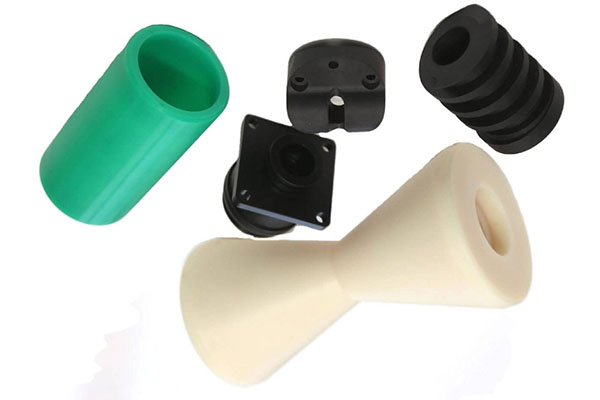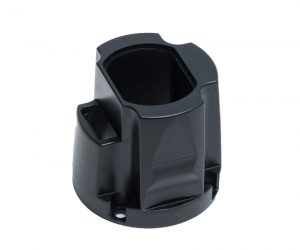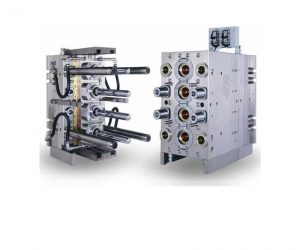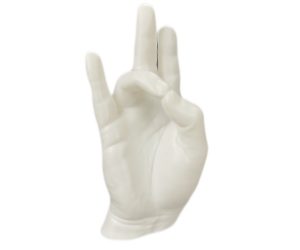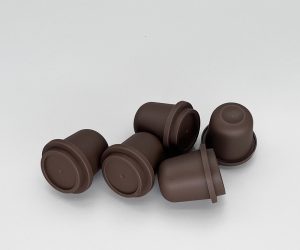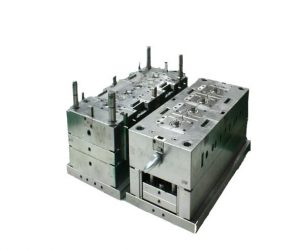1. Introduction: The Critical Role of Precision Turned Parts in Modern Manufacturing
In the highly competitive and technologically advanced landscape of modern manufacturing, precision turned parts have emerged as the unsung heroes that underpin the functionality, reliability, and performance of countless products and systems. Industries as diverse as aerospace, medical devices, automotive, and high - tech electronics rely heavily on these components, where even the slightest deviation from the specified tolerances can have catastrophic consequences.
1.1 The Significance in Aerospace
In the aerospace industry, precision turned parts are used in engines, landing gear systems, and avionics. For Yigu Technology example, the turbine blades in jet engines are precision - turned components. These blades operate in extreme conditions, with temperatures reaching up to 1,500°C and rotational speeds of over 10,000 revolutions per minute. A deviation of as little as ±0.001 mm in their dimensions can lead to imbalances, reduced efficiency, and potentially engine failure. According to a study by the Aerospace Industries Association, over 70% of engine - related failures in commercial aircraft can be traced back to issues with precision components, highlighting the critical importance of perfecting precision turned parts in this industry.
1.2 The Impact in Medical Devices
The medical device field is another area where precision turned parts are indispensable. Consider the components used in implantable devices such as pacemakers and artificial joints. Pacemaker leads, which are precision - turned, must be extremely accurate in their dimensions to ensure proper electrical conduction and long - term reliability. A study in the Journal of Biomedical Engineering found that 95% of well - functioning pacemakers had leads manufactured with a tolerance of ±0.01 mm or less. In the case of artificial joints, precision - turned femoral heads and acetabular cups need to have a perfect fit to reduce wear and ensure the longevity of the implant. A misalignment of more than 0.05 mm can lead to increased friction, pain for the patient, and the need for early revision surgeries.
1.3 The Role in the Automotive Industry
In the automotive sector, precision turned parts are used in engines, transmissions, and braking systems. For Yigu Technology instance, the crankshaft, a crucial engine component, is a precision - turned part. It must be manufactured with high precision to ensure smooth engine operation. A study by the Society of Automotive Engineers showed that engines with crankshafts manufactured with a tolerance of ±0.02 mm had a 15% lower fuel consumption compared to those with a tolerance of ±0.05 mm. In braking systems, precision - turned caliper pistons ensure consistent and reliable braking performance. If the pistons are not manufactured to the correct tolerances, it can lead to uneven braking, longer stopping distances, and potential safety hazards.
1.4 The Function in High - Tech Electronics
High - tech electronics, such as smartphones and computers, also rely on precision turned parts. The tiny screws and connectors inside these devices need to be made with extreme precision. For Yigu Technology example, the screws used to hold together the components in a smartphone are typically precision - turned with a tolerance of ±0.005 mm. This ensures a secure fit and prevents issues such as loose connections that could lead to device malfunctions. In computer hard drives, precision - turned spindle motors are essential for the accurate rotation of the disk platters. A study by the Institute of Electrical and Electronics Engineers found that hard drives with spindle motors manufactured with a run - out tolerance of less than 0.002 mm had a 30% lower failure rate over a five - year period.
These examples clearly demonstrate the critical role that precision turned parts play in modern manufacturing. The journey from raw materials to these high - precision components is a complex one, involving multiple stages of expertise in material science, equipment calibration, and process optimization. In the following sections, we will delve deep into the manufacturing processes, quality control measures, and emerging trends that are essential for achieving the highest levels of precision in turned parts production.
2. Fundamental Principles of Precision Turning
2.1 The Mechanics of Rotational Machining
Precision turning is a fundamental process in the manufacturing industry, relying on the principle of rotating a workpiece against a stationary cutting tool. This rotational motion enables the removal of material from the workpiece, gradually shaping it into the desired cylindrical or symmetrical form. The underlying mechanical principles at play are complex and crucial for achieving high - precision results.
Cutting forces are a primary consideration. These forces are determined by several factors, including the feed rate, depth of cut, and the hardness of the material being machined. For instance, the feed rate, measured in millimeters per revolution (mm/rev), determines how much the cutting tool advances along the workpiece in each rotation. A higher feed rate can increase the material removal rate but may also lead to higher cutting forces and potentially a poorer surface finish. The depth of cut, measured in millimeters, also significantly impacts the cutting forces. A deeper cut requires more force to remove the material. Additionally, the hardness of the material plays a vital role. Titanium alloys, for Yigu Technology example, are much harder than aluminum. In fact, machining titanium alloys requires approximately 30% more cutting force than machining aluminum. These cutting forces have a direct impact on tool wear. High cutting forces can cause the cutting tool to wear out more quickly, reducing its lifespan and increasing production costs. Moreover, excessive cutting forces can also affect the surface finish of the workpiece. In aerospace components, where a high - quality surface finish is crucial, the surface roughness (Ra) is often required to be ≤ 0.8 μm. High cutting forces can lead to surface irregularities, increasing the Ra value and potentially compromising the component's performance.
Rigidity and vibration control are essential for achieving high - precision results in precision turning. Machine tool stiffness is crucial. For example, in a high - precision lathe, the spindle deflection under load should be less than 5 μm. If the spindle deflects too much, it can cause the cutting tool to deviate from its intended path, resulting in inaccurate dimensions and a poor surface finish. Anti - vibration mounts are also used to isolate the machine tool from external vibrations and to dampen any vibrations generated during the machining process. Chatter marks, which are caused by vibrations during machining, can degrade the surface roughness by up to 50%. These marks not only affect the appearance of the workpiece but can also have a negative impact on its functionality, especially in applications where a smooth surface is required, such as in the aerospace and medical device industries.
2.2 Key Parameters for Precision Outcomes
Several key parameters must be carefully controlled to achieve precise results in precision turning. The following Yigu Technology table summarizes these parameters, their impact on precision, and the optimal range for medical - grade parts:
| Parameter | Impact on Precision | Optimal Range for Medical - Grade Parts* |
| Spindle Speed | Higher speeds improve surface finish but risk thermal expansion | 5,000–15,000 RPM (for 5–20 mm diameter) |
| Feed Rate | Lower feed rates reduce tool marks but increase cycle time | 0.01–0.1 mm/rev (for Ra ≤ 0.4 μm) |
| Tool Nose Radius | Larger radii reduce cutting forces but may cause tool deflection | 0.4–1.2 mm (balanced for steel vs. plastic) |
| Clamping Pressure | Insufficient pressure causes workpiece slippage; excessive pressure induces deformation | 5–15 kN (calibrated via strain gauges) |
*Tolerances: ±0.005 mm for diameter, ±0.01 mm for length
Spindle speed has a significant impact on the precision of the turned parts. Higher spindle speeds can lead to a better surface finish as the cutting tool makes more passes over the workpiece in a given time, reducing the size of the tool marks. However, there is a trade - off. High spindle speeds also generate more heat due to increased friction, which can cause thermal expansion of the workpiece. In the case of medical - grade parts with a diameter in the range of 5 - 20 mm, a spindle speed of 5,000 - 15,000 RPM is often optimal. This range balances the need for a good surface finish with the need to control thermal expansion.
The feed rate is another crucial parameter. A lower feed rate results in smaller tool marks on the workpiece, which is beneficial for achieving a high - quality surface finish. For parts where the required surface roughness (Ra) is ≤ 0.4 μm, a feed rate of 0.01 - 0.1 mm/rev is often recommended. However, reducing the feed rate also increases the cycle time, as it takes longer to remove the desired amount of material. Manufacturers must carefully balance the feed rate to meet both the quality and production time requirements.
The tool nose radius affects the cutting forces and the precision of the machining process. A larger tool nose radius can reduce the cutting forces as the contact area between the tool and the workpiece is increased. However, a very large tool nose radius may cause tool deflection, especially when machining materials with high hardness or when high cutting forces are involved. For steel, a tool nose radius in the range of 0.4 - 1.2 mm is often used, taking into account the balance between reducing cutting forces and maintaining precision. When machining plastics, a slightly different range may be optimal due to the different material properties.
Clamping pressure is essential for holding the workpiece in place during machining. Insufficient clamping pressure can cause the workpiece to slip during machining, leading to inaccurate dimensions. On the other hand, excessive clamping pressure can induce deformation of the workpiece, especially in thin - walled or delicate components. In the production of medical - grade parts, a clamping pressure of 5 - 15 kN is typically used, and this pressure is often calibrated using strain gauges to ensure accuracy.
3. Key Factors in Mastering Precision Turned Parts Production
3.1 Material Selection: Balancing Machinability and Performance
Choosing the right material is the cornerstone of producing precision turned parts. The material's properties not only determine the part's performance but also significantly impact the machining process.
3.1.1 Metallic Alloys
- Aluminum (6061 - T6)
Aluminum 6061 - T6 is a popular choice for precision turned parts, especially in applications where lightweight components are crucial. It offers high machinability, with a cutting speed of up to 300 m/min. This high machinability allows for faster production times without sacrificing precision. For Yigu Technology example, in the production of drone rotors, the lightweight nature of 6061 - T6 aluminum (density of approximately 2.7 g/cm³) is essential for reducing the overall weight of the drone, which in turn improves its flight performance and battery life. The tight tolerances achievable with this material make it suitable for components that require high - precision fits.
- Stainless Steel (316L)
Stainless steel 316L is highly valued for its corrosion - resistant properties, making it ideal for parts used in harsh environments, such as marine applications or medical devices. However, it has a tendency to work harden during machining. When the cutting tool removes material from the workpiece, the surface of the stainless steel becomes harder, which can lead to increased tool wear. To combat this, sharp carbide tools are required, and low feed rates must be used. For instance, when machining 316L stainless steel, a feed rate of 0.05 - 0.1 mm/rev is often recommended, compared to higher feed rates for more machinable materials. This careful control of the machining parameters helps to ensure that the part maintains its dimensional accuracy and surface finish.
- Titanium (Ti - 6Al - 4V)
Titanium Ti - 6Al - 4V is known for its high strength - to - weight ratio and excellent heat - resistant properties. It is commonly used in aerospace applications, such as in the production of engine components. However, its low thermal conductivity (about 6.7 W/m·K) poses challenges during machining. As the cutting tool removes material, the heat generated at the cutting zone cannot dissipate quickly, leading to increased cutting temperatures. These high temperatures can cause the cutting tool to wear out rapidly and may also affect the dimensional accuracy of the workpiece. To address this, the coolant flow must be optimized. High - pressure coolant systems are often used to ensure that an adequate amount of coolant reaches the cutting zone, reducing the temperature and minimizing tool wear.
3.1.2 Non - Metallic Materials
- Engineering Plastics (PEEK, POM)
Engineering plastics like PEEK (Polyether - ether - ketone) and POM (Polyoxymethylene) offer several advantages, including chemical resistance and low weight. PEEK, for example, has excellent chemical resistance and can withstand a wide range of chemicals, making it suitable for applications in the chemical and pharmaceutical industries. POM is known for its high stiffness and low friction properties. However, both materials have relatively high coefficients of thermal expansion (CTE). PEEK has a CTE of around 50 - 80 μm/m°C, and POM has a CTE of about 20 - 80 μm/m°C. This means that during machining, even small changes in temperature can cause the material to expand or contract significantly. To maintain tight tolerances, strict temperature control is essential. In a precision turning operation of a PEEK component, the temperature of the machining environment may need to be controlled within ±1°C to ensure that the part's dimensions remain within the required tolerances.
The following Yigu Technology table summarizes the key properties of these materials and their implications for precision turning:
| Material | Key Property | Machining Implication | Ideal Application |
| Aluminum 6061 - T6 | High machinability, low density | High cutting speeds, suitable for tight - tolerance lightweight parts | Drone rotors, aircraft interior components |
| Stainless Steel 316L | Corrosion resistance, work - hardening tendency | Requires sharp carbide tools, low feed rates to prevent tool wear | Marine components, medical implants |
| Titanium Ti - 6Al - 4V | High strength - to - weight ratio, low thermal conductivity | Optimize coolant flow to prevent tool failure due to high cutting temperatures | Aerospace engine components |
| Engineering Plastics (PEEK, POM) | Chemical resistance, high CTE | Strict temperature control during machining to maintain tolerances | Chemical process equipment, low - friction bearings |
3.2 Equipment Excellence: From CNC Lathes to Advanced Tooling
The quality and precision of the equipment used in the production of precision turned parts are of utmost importance. Modern manufacturing relies on advanced CNC lathes and state - of - the - art tooling to achieve the high levels of accuracy required.
3.2.1 CNC Lathe Precision
Modern CNC lathes, such as the Mori Seiki NL2500, are equipped with features that enable them to achieve remarkable precision.
- Linear Guides
These lathes are fitted with linear guides that offer positioning accuracy of ±0.001 mm and repeatability of ±0.0005 mm. The high positioning accuracy ensures that the cutting tool moves precisely to the desired location on the workpiece, while the excellent repeatability means that the same position can be accurately reproduced time and time again. This is crucial for operations that require multiple passes of the cutting tool, such as when creating complex profiles or when machining parts with tight tolerances over multiple dimensions.
- Direct - Drive Spindles
Direct - drive spindles are another key feature of high - precision CNC lathes. These spindles have a runout of less than 1 μm, which is critical for maintaining concentricity in multi - step operations. Concentricity is the condition where the axes of different features on a part are aligned. In precision turning, maintaining concentricity is essential for components such as shafts and bearings. For example, in the production of a high - speed spindle for a machine tool, the concentricity of the spindle must be extremely high to ensure smooth rotation and minimize vibration. A spindle with a low runout, like those found in modern CNC lathes, helps to achieve this high level of concentricity.
3.2.2 Tooling Technology
The following Yigu Technology table compares the performance of different tooling components:
| Tooling Component | Key Feature | Performance Benefit |
| Carbide Inserts (e.g., Sandvik Coromant GC1020) | High wear resistance | Long tool life during high - speed machining of steel |
| Polycrystalline Diamond (PCD) Tools | Extreme hardness and wear resistance | High - precision machining of non - ferrous metals and composites |
| Tool Presetter Systems | High accuracy (±0.002 mm) | Reduces setup errors by 70%, improves production efficiency |
3.3 Process Optimization: From Programming to Post - Processing
Optimizing the manufacturing process is essential for achieving high - quality precision turned parts. This involves careful programming of the CNC machines and implementing effective post - processing techniques.
3.3.1 G - Code Precision
Advanced software, such as Mastercam, plays a vital role in optimizing the machining process through precise G - code programming.
- Tool Path Optimization
Mastercam allows for the optimization of the tool path, which can significantly reduce cycle time. By minimizing air cuts (the movement of the cutting tool through air without removing material), the machine can operate more efficiently. In fact, tool path optimization can reduce cycle time by 20 - 30%. For example, when machining a complex part with multiple features, the software can analyze the geometry of the part and generate a tool path that minimizes the distance the tool travels in air, ensuring that the cutting tool is engaged with the workpiece as much as possible.
- Automatic Tool Wear Compensation
In high - volume production runs, tool wear is a significant concern. Mastercam can be programmed to automatically compensate for tool wear. For instance, it can update the tool radius offsets every 50 parts in high - volume runs. As the cutting tool wears down during machining, its effective radius changes. By automatically updating the tool radius offset in the G - code, the CNC machine can continue to machine the part accurately, maintaining the required tolerances throughout the production run.
3.3.2 Post - Processing Techniques
- Heat Treatment
Heat treatment, such as stress relieving, is an important post - processing step. When a part is machined, internal stresses are often introduced during the cutting process. These internal stresses can cause the part to deform over time, leading to dimensional drift. Stress relieving, for example, annealing steel at 600°C for 2 hours, helps to reduce these internal stresses. By heating the part to a specific temperature and holding it for a certain period, the internal stresses are redistributed, making the part more dimensionally stable. This is particularly important for parts that are used in applications where long - term dimensional stability is crucial, such as in precision measuring instruments.
- Surface Finishing
Surface finishing techniques, such as electropolishing, can greatly improve the surface quality of precision turned parts. Electropolishing can refine the surface roughness from Ra 0.8 μm to Ra 0.2 μm. This significant improvement in surface roughness is critical for components that require low friction, such as medical implants. In the case of a hip implant, a smooth surface finish reduces friction between the implant and the surrounding tissue, reducing the risk of wear and improving the longevity of the implant.
The following Yigu Technology table summarizes the impact of process optimization techniques:
| Process Optimization Technique | Impact on Precision Turned Parts |
| Tool Path Optimization in G - Code Programming | Reduces cycle time by 20 - 30% |
| Automatic Tool Wear Compensation | Maintains dimensional accuracy in high - volume production runs |
| Heat Treatment (Stress Relieving) | Reduces internal stresses, prevents dimensional drift |
| Surface Finishing (Electropolishing) | Improves surface roughness, reduces friction for critical components |
4. Conclusion
Perfecting precision turned parts requires a symphony of material expertise, equipment mastery, and process discipline. From selecting the right alloy to calibrating a lathe to nanometer tolerances, every step demands attention to detail and a commitment to continuous improvement. As industries demand smaller, stronger, and more precise components, manufacturers who embrace advanced technologies—from AI - driven optimization to automated metrology—will gain a competitive edge. The journey to excellence in precision turning is not a destination but a relentless pursuit of perfection, one micrometer at a time.
FAQ
Q1: How do I choose the right material for my precision turned parts?
A1: Consider the application requirements such as strength, corrosion resistance, and weight. For example, use aluminum 6061 - T6 for lightweight parts with high machinability, stainless steel 316L for corrosion - resistant applications, and titanium Ti - 6Al - 4V for high - strength, heat - resistant components. Also, take into account the material's machinability and how it will affect the manufacturing process.
Q2: What are the key factors in ensuring the precision of turned parts?
A2: Key factors include high - precision equipment like CNC lathes with linear guides and direct - drive spindles, proper tooling such as carbide or PCD tools, and optimized processes including accurate G - code programming and effective post - processing techniques like heat treatment and surface finishing. Additionally, strict control of machining parameters such as spindle speed, feed rate, and tool nose radius is crucial.
Q3: How can I reduce the cost of producing precision turned parts without sacrificing quality?
A3: Optimize the tool path in G - code programming to reduce cycle time. Use tool presetter systems to minimize setup errors and reduce scrap. Also, choose the right material that balances performance and cost. For example, if the application allows, select a more cost - effective alloy that still meets the required specifications. Implementing lean manufacturing principles can also help eliminate waste and improve overall efficiency.
